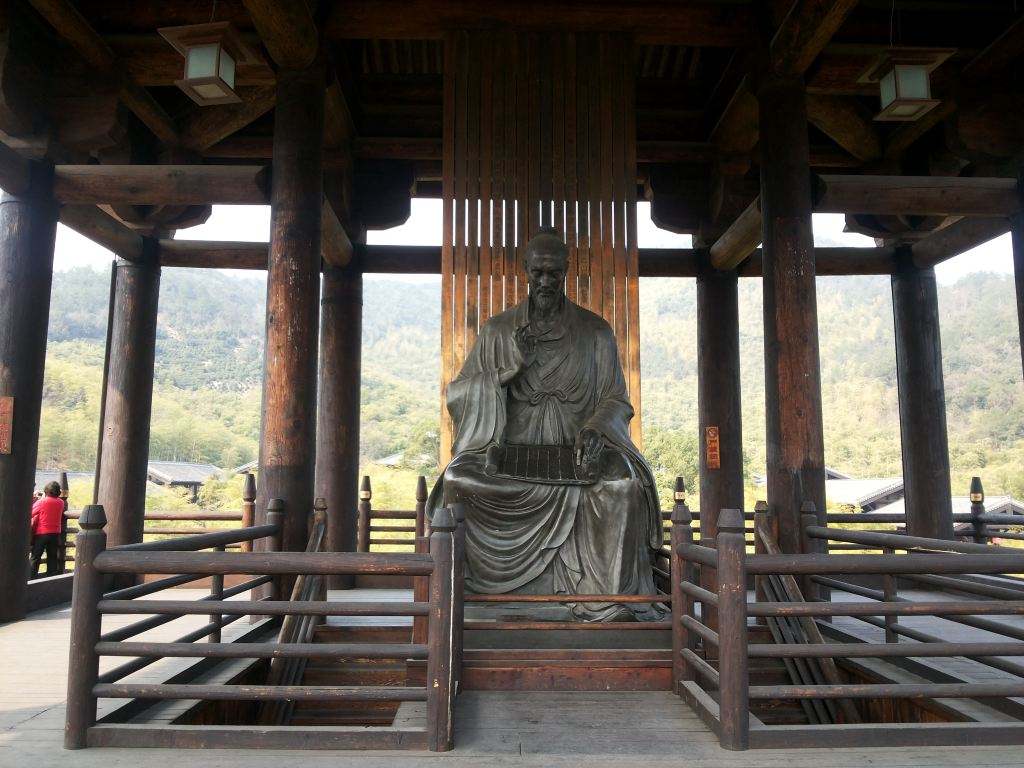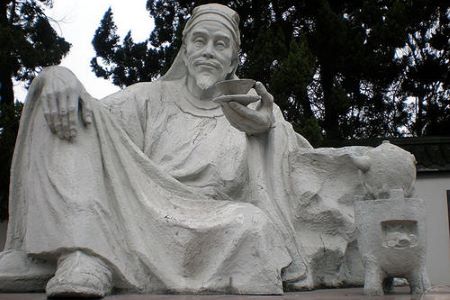
Lu Yu (733 A.D.-804 A.D.) was born in Jingling, Fuzhou (now Tianmen City, Hubei Province, China). He was a famous tea scholar of the Tang Dynasty and honored as “The Sage of Tea”. In his lifetime, he was deeply attracted by tea and skillful in the tea ceremony. He was known throughout the world because he wrote the world’s first known monograph on tea – The Classic of Tea. He was also good at writing poetries. But few of his poetries was left to us. He had a keen interest in tea leaves. So, he had studies tea leaves for a long time to get familiar with the planting, breeding and processing of tea trees. Understandably, he was also adept at tasting tea. In the Tang Dynasty (760 A.D.), Lu Yu lived in seclusion in Tiaoxi (now Huzhou City, Zhejiang Province, China). During that period, he wrote the three volumes of The Classic of Tea, which became the world’s first known monograph on tea. In the three volumes he discussed many aspects on tea leaves, such as characteristics, quality, product areas, planting, plucking, processing, boiling and tea wares. Lu Yu opened up a new era of tea, making outstanding contribution to the development of the tea industry in the world.

In the middle of the Tang Dynasty, Lu Yu proceeded northward with refugees of Chengzhou. He traveled in many areas in the middle and lower reaches of the Yangtze River and in the Huaihe River basin. During that period, he not only collected a large number of first-hand information on the production and processing of tea leaves, but also accumulated rich experience in tasting spring water. He then wrote an article named “Water Tasting”, which unfortunately failed to be handed down from his generations. However, a contemporary scholar Zhang Youxin quoted a list of water tasting of Lu Yu in detail. In this list Lu Yu made a comment on tasting 20 kinds of water from rivers, wells and springs. He even made a comment on tasting snow water. For example, the best water was from Kangwang Valley, Mount Lu; the second-best water was from Huishan Temple, Wuxi; and the third-best water was from Lanxi, Qizhou. The water from the Zhongling Spring in the middle of the Yangtze River (now Zhenjiang City, Jiangsu Province, China) was listed as the seventh class of water.

What is interesting is that Zhang Youxin recorded a true story. Li Jiqing, a prefectural governor, met with Lu Yu on the bank of the Yangtze River. Lu Yu was studying tea leaves at that time. So, Li Jiqing invited Lu Yu to travel together on his boat. Li Jiqing heard from Lu Yu that Nanling water from the middle of the Yangtze River was perfect for boiling tea leaves. So, Li Jiqing dispatched some of his soldiers to fetch Nanling water by boat. Unexpectedly, the soldiers splashed more than half of the water and secretly filled the water pot with some river water near the river bank. Lu Yu took a sip of the water in the water pot and immediately said, “The water is from somewhere near the river bank. It is not Nanling water.” The soldiers fetching water were quite impressed. They kneeled in front of Lu Yu, telling him the truth. From then on, Lu Yu became famous for his exquisite skill in tasting water. After Lu Yu passed away, later generations regarded him as “The Sage of Tea”.
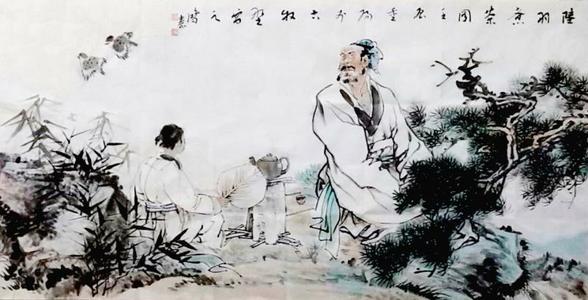
In the history of Chinese tea culture, the tea science, tea arts and tea ceremonies as well as The Classic of Tea created and written by Lu Yu were an epoch-making event. In the feudal society in China, it was difficult for scholars like Lu Yu to study tea science or tea ceremonies. Like other scholars, Lu Yu delved into the Confucianism and was extremely familiar with it. However, Lu Yu was not fettered by the Confucianism. He was able to utilize the profound academic principles in people’s material life, thereby creating the splendid tea culture.
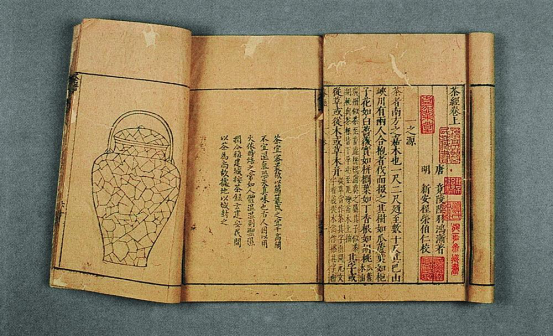
The Classic of Tea written by Lu Yu consists of three volumes (ten articles), totaling more than 7,000 Chinese characters. In the monograph he summarized the scientific knowledge and practical experience on tea leaves of and before the Tang Dynasty. The monograph can be said to be the wisdom crystallization of Lu Yu, because he traveled to many places and studied tea leaves in person and worked persistently without weariness. He not only collected the first-hand information on the production and processing of tea leaves, but also read a lot of books. Once the monograph was published, it enjoyed great popularity and was studied and collected by the people of that time.
Lu Yu did not value power and wealth in his lifetime. He was very fond of the nature and insisted on justice. In the Complete Poetry of the Tang Dynasty, Lu Yu’s noble character was embodied by a song: Lu Yu does not envy those who possess golden wine vessels or white jade cups. Lu Yu does not envy those who are with power. He cares about the water from Xijiang River.
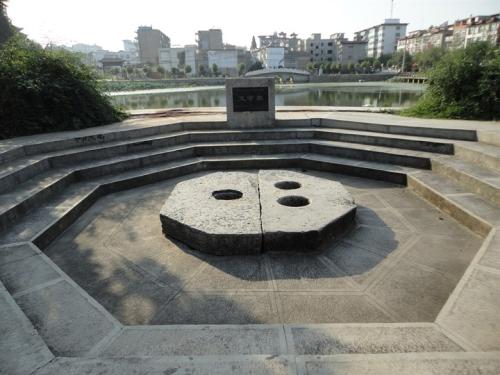
Lu Yu was born in Jingling, Fuzhou (now Tianmen City, Hubei Province, China). There are still many relics that are related to Lu Yu. In Tianmen City there is the Ancient Wild Goose Bridge, which is said to be a place where a wild goose protected Lu Yu. In Zhenbei Gate there is the Three Eyes Well, which is said to be a well where Lu Yu got water for boiling tea leaves. Later generations erected a stone tablet beside the raised platform around the well. On the stone tablet you can see a painting, which shows that Lu Yu is sitting beside the well and tasting the tea liquid. Lu Yu Pavilion was established in the Qing Dynasty and then destroyed in the war. It was reconstructed as a double-deck wooden pavilion with a shape of hexagon. The reconstructed pavilion was delicate and elegant, making tea drinkers unwilling to leave. Lu Yu Memorial was located on the bank of Xihu, Jingling. The memorial consists of the former residence of Lu Yu, the historical sites to commemorate Lu Yu, and the building complex for tea-related activities. Tourists who want to learn more about Lu Yu’s story and legend may visit the memorial.
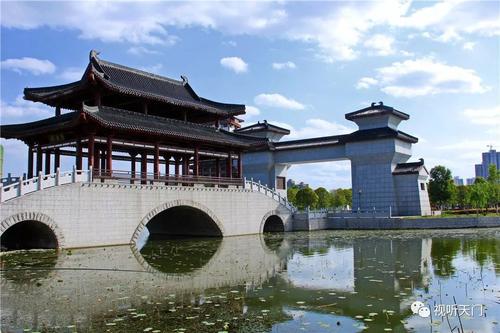
Established in 1995, Tianmen Luyu Memorial Park Scenic Area is located in Xihu, Tianmen City, Hubei Province, China. The park is named after Lu Yu and provides a fantastic place for millions of citizens and Chinese and foreign tourists to relax physically and mentally. It covers an area of 45 hectares, with two thirds being lake water scenic area. Weeping willows, small bamboo forests, bright-colored oleanders, blooming flowers and so on.
Lu Yu definitely has made significant contributions to China and other countries in the world in terms of tea science and tea industry. He was honored as “The Sage of Tea” or an expert on tea leaves after he passed away. He became famous for his exquisite skill in tasting tea and his monograph The Classic of Tea.
